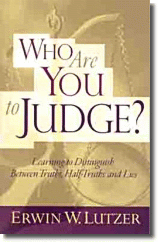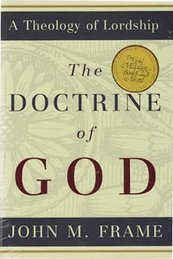In the Alister McGrath's
The Twilight of Atheism: The Rise and Fall of Disbelief in the Modern World, he tells the story of Mary Ann Evans who became an atheist when she had entered adulthhood. By the way, if one may ask, who is Mary Ann Evans? Well... her pen name is George Elliot. Elliotwas a member of the Church of England from young. McGrath tells us that in an 1860 letter to a colleague in Geneva, Eliot spoke of “the strong hold Evangelical Christianity had on me from the age of fifteen to two and twenty.” McGrath wrote that Eliot was permanently alienated from God because:
While earlier forms of evangelicalism had been theologically generous, laying emphasis upon personal devotion to Jesus rather than fidelity to theological dogmas, a new stridency within the movement around this time led to a hardening of attitudes. The quality of a person’s faith was now judged by doctrinal correctness rather than a love for Christ. The warmheartedness of earlier versions of evangelicalism now gave way to increasingly dogmatic and impersonal construals of the Christian faith, which repelled as many as it attracted. (p. 128)
Is doctrine (Theology) important? I think it is! Erwin W. Lutzer (the senior pastor of Moody Memorial Church in Chicago) in his book
Who Are You to Judge? (Moody), tells us that doctrine correctness is important. We shouldn't "sacrifice" truth for love. On the contrary, we have the responsibility to judge doctrine when they are wrong. We judge doctrine, judge behaviour, but we do not judge people! God does that! Dr. Lutzer reminds us that we must have biblical discernment. Among the notable statements that Dr. Lutzer made, one of them is
A half-truth is more destructive than a whole lie, namely because a half truth is harder to recognize. If we just look around, this is exactly what is happening in many of the "mega" churches around us (in Singapore). These churches talk about Jesus, but they add a lot of other consumer-oriented "biblical truths". We mustn't let misguided tolerance plagues our church. Marsha West has written a two-part commentary titled “Whatever” Christianity (
Part I,
Part II) that laments the theological relativism commonly seen in many Christians. She pointed out that to post-modern Christians, even outright heresy becomes acceptable. Hmm... , it seems we have really forgotten we are warned that "Beware of false prophets, who come to you in sheep's clothing but inwardly are ravenous wolves. (Matthew 7:15)
But didn't Jesus say "Who are you to judge?" "Do not judge or you to will be judged." When using these statements, many of us didn't exactly know what we meant. Defective hermeneutics is the cause! We take bible verses out of context. Jesus is only telling us "Don't become a Pharisee, but do make
righteous judgments. " For me, I don't see one as unloving when he/she judges. We just need to learn discernment in a loving way. That is, when one is exposing error, one should do it with an intent to win back the brother. May we not lost the ability to judge the world because we have lost the ability to judge ourselves!
Doctrinal purity is important. If we (the church) is not correct in our doctrine, we run into the danger of preaching a false gospel, and a false gospel is not relevant to the world!
I believe there can be a balance of doctrinal correctness and a love for Christ. There is simply no clash! When we love God, we will be concerned about doctrinal correctness. When we know what is really "doctrinal correctness ", we learn to love God. We see the need and importance of loving God, because we know that Jesus Christ is the first Word. Jesus is the Word behind the words of Scripture. As Schleiermacher tells us, true religion is “an immediate relation to the living God, as distinct from submission to doctrinal or creedal propositions about God.”
Dr McGrath tells us that "many of Eliot’s misgivings about Christianity in general are best seen as specific response to the ideas of evangelicalism". For example, in an article in the
Westminster Review for October 1855, Eliot offered a sustained criticism of a popular London evangelical preacher, John Cumming. Eliot took particular exception to Cumming’s insistence that only actions directed toward the glory of God might be deemed to be good. Eliot wrote:
Dr Cumming’s theory … is that actions are good or evil according as they are prompted or not prompted by an exclusive reference to the “glory of God.” God, then, in Dr Cumming’s conception, is a being who had no pleasure in the exercise of love and truthfulness and justice, considered as effecting the well-being of His creatures; he has satisfaction in us only so far as we exhaust our motives and dispositions of all relation to our fellow-beings, and replace sympathy with men by anxiety for the “glory of God.” (p. 130)
Dr McGrath wrote that Eliot deems this to be a rather harsh and unattractive God, who “instead of sharing and aiding our human sympathies is directly in collision with them; who instead of strengthening the bond between man and man, by encouraging the sense that they are both alike the objects of His love and care, thrusts himself between them and forbids them to feel for each other except as they have relation to Him.” (p. 130)
In other words, Eliot rejected Christianity because she did not want to believe in an idea of a sovereign God who could deal unaccountably with his creatures in any way he liked. As McGrath wrote, "many Victorians found this
deeply disturbing and in open conflict with their increasingly
developed sense of morality and justice". (p. 131) In many ways, contemporary Christians are like Eliot. We reject Christianity, we reject the bible, simply because the truths taught in the bible do not match our expectations. We believe we are more moral and have more justice than God! We believe we can be good without God! However, these beliefs just show we have entered postmodernism---there are no rights or wrongs; truth is defined as my personnel opinion, with no absolutes. We have forgotten (or have we ever believed?) the bible is God's revelation. We are currently in Dec, and this is the month where there are many baptism and confirmation. Those baptised are asked whether they believe in the canon of scripture. many answered "Yes!", but I do wonder how many really meant what they say! We need to be constantly reminded (it seems to me!) that the biblet is 1) Apostolic (authored by immediate apostles or close associates of the apostles. 2) Catholic (widely circulated among the early Christian assemblies. 3) Orthodox (does not contradict the faith of the early Christian tradition) Lastly, most importantly, there is also the Witness of the Holy Spirit. As such, faith in God and trusting the bible as God's revelation is not just a leap of faith. It has historical backings!
While doctrinal correctness is important, we mustn't forget that "The love within the church attracts the world, the holiness within the church convicts the world." We should never think "It is better to tolerate error than to look ugly defending the truth"! Also, if we are no longer loving, it just shows that we have not understood our bible at all! We may say that we know and believe in God (ie. know doctrines), but we do not. May God grant us a loving heart and a discerning mind! Amen!


